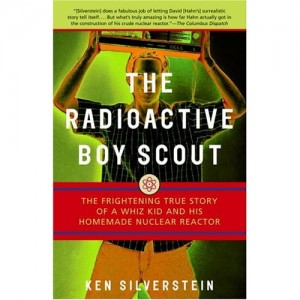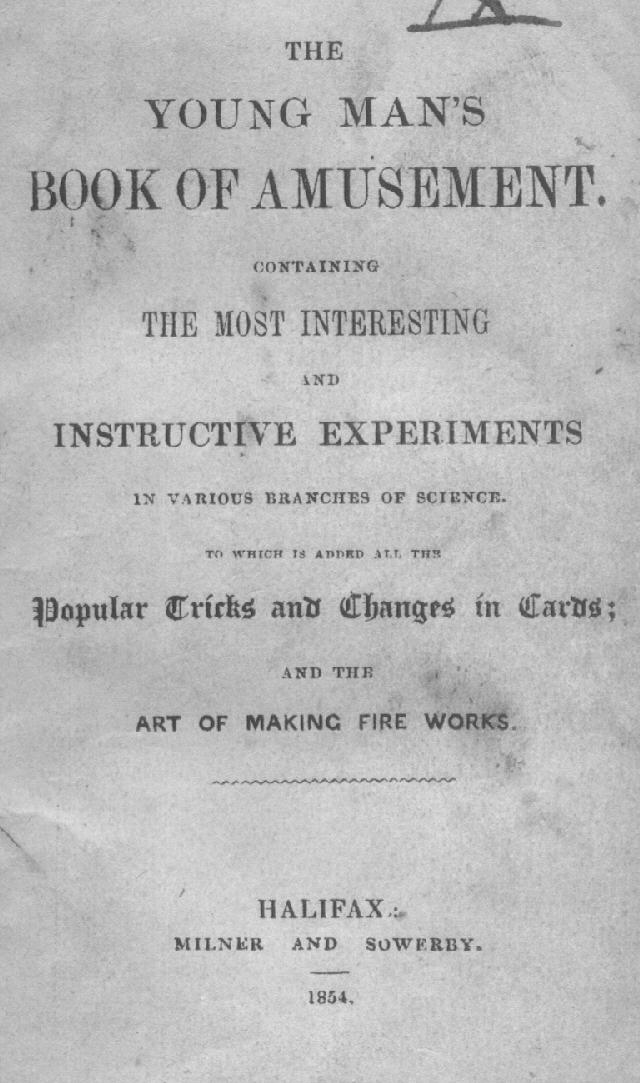The National Secular Society’s annual award for Secularist of the Year has been awarded jointly to Dr Evan Harris MP and Lord Avebury, for their success in getting blasphemy laws abolished. I joined the event this afternoon, which was also a celebration of Charles Darwin’s 200th anniversary, at the Imperial Hotel in central London.

The awards were made by Professor Richard Dawkins, and comprised a golden ammonite trophy and a cheque for £5000. Both winners declined to keep the money and donated it instead for next year’s prize.
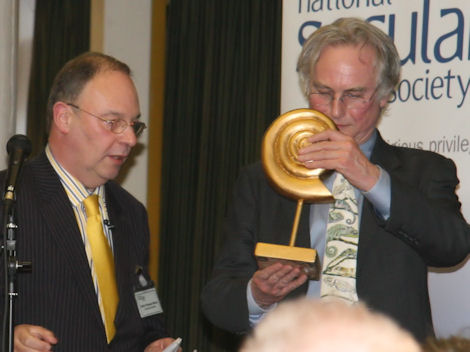
A range of politicians, scientists, celebrities, and commentators of various types were in the audience: including from the scientific community Prof.Peter Atkins. Prof.Steve Jones, a previous year’s winner of the prize, sent best wishes. Science journalists included Simon Singh (Fermat’s Last Theorem), and Ben Goldacre (Bad Science). I also spotted former news presenter Anna Ford, and comedian Robin Ince.
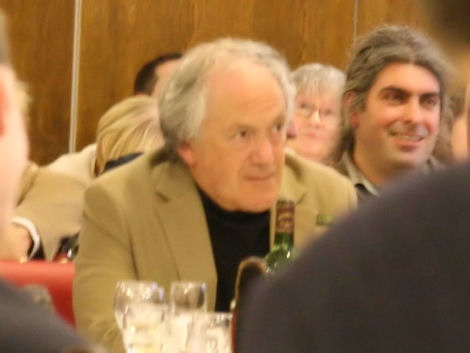
The abolition of the blasphemy law in 2008 was something of a coup for the NSS. Secularists have been fighting for years what has seemed like an unwinnable battle, and I sense the movement still can’t quite believe its success. While not used since the 1970s, Christian evangelicals had been pushing for a revival in the application of the law.
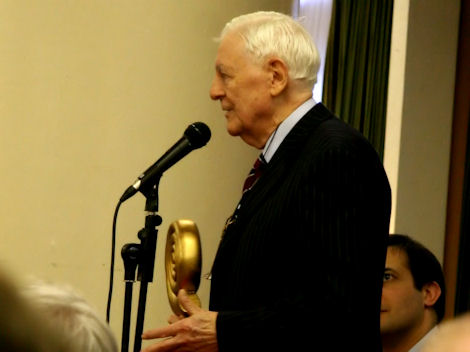
A statement on the NSS website after the event said: ‘The ancient law was called the common law offence of blasphemous libel, and was widely thought to be incompatible with the European Convention on Human Rights. Despite this, the Government had not been keen to abolish it, we believe because of fear of discomforting the Established Church. They see abolition as an attack on their privileged position and a possible first step towards disestablishment.’
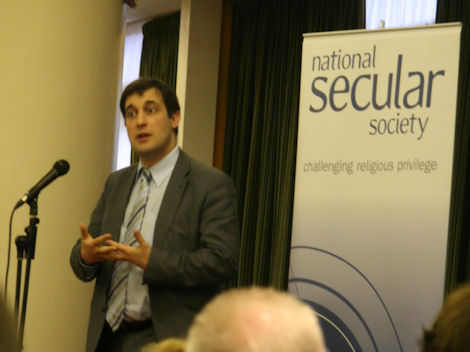
It was a lively afternoon, where the company, food, and entertainment were all excellent. The formal entertainment took the form of a re-enactment of a debate held in Oxford in 1860 between Thomas Huxley (Darwin’s Bulldog) and the Bishop of Oxford, Samuel Wilberforce (Soapy Sam). In ultimate irony, Wilberforce was (a little too convincingly) played by Terry Sanderson, the President of the NSS. Given the audience, the winner of the debate was never at issue.
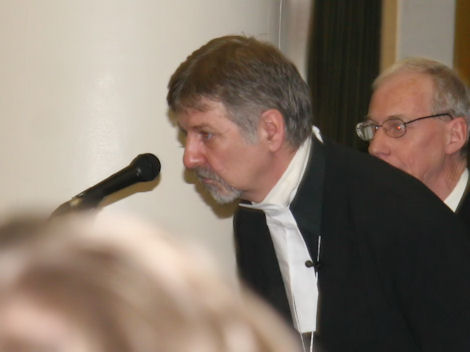
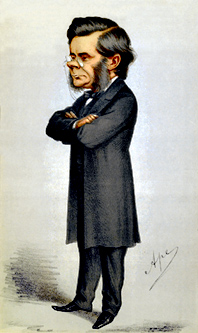
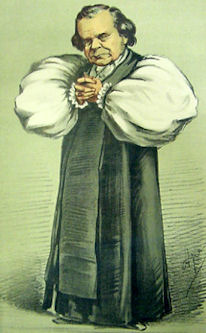
Joint winner Lord Avebury’s story is equally ironic. His grandfather, one of Darwin’s great supporters and a member of the ‘X Club‘ with Huxley, was not actually an atheist: he was too ‘conventional’, Avebury said. Indeed, incongruous with his grandson’s award today, his grandfather had been instrumental in having Darwin buried in Westminster Abbey.
Evan Harris, who one critic has described as humourless, was everything but, quipping in surprise as he received his golden ammonite trophy: “I was always taught at Hebrew School that the Ammonites were slain by the Israelites”.
